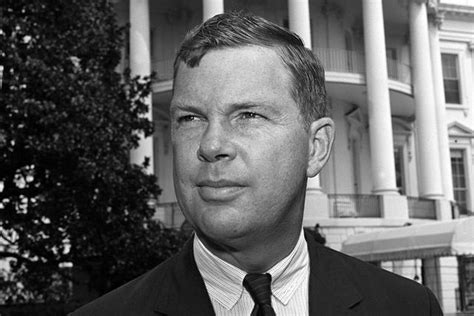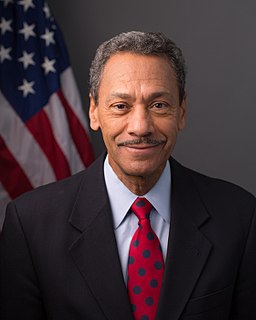A Quote by Tom Wicker
Pres. Lyndon Johnson was a middle-aged man of smalltown America, both a Westerner and a Southerner, and except where politics had demonstrably forced his growth-as on the question of civil rights-he functioned like most men, as a product of his background.
Related Quotes
When Kennedy could not get the civil rights bill passed - and he was the big liberal - Lyndon Johnson came in and it got passed, and he was the conservative and the southerner. So sometimes in politics, to get something done, it takes a special kind of knowledge and a special kind of person, but it doesn't always follow the party lines.
Now in my view, if you were to line up the Presidents in the order of who made the greatest accomplishments, you'd put Lyndon Johnson in that arena with both Roosevelts probably, and [Abraham] Lincoln and so on. But the idea that Lyndon Johnson was operating as a free agent and coming up with these ideas on his own is nonsense.
The right to life is the source of all rights -- and the right to property is their only implementation. Without property rights, no other rights are possible. Since man has to sustain his life by his own effort, the man who has no right to the product of his effort has no means to sustain his life. The man who produces while others dispose of his product, is a slave.
The president who did the most for black Americans in 20th century history was Lyndon Johnson, and he got his hands dirty by dealing with Southern senators, Southern congressmen, horse trading with them, cajoling them, learning what not to talk about. And he got civil rights passed and Great Society programs. That should be the model. Get over yourself.
A rioter with a Molotov cocktail in his hands is not fighting for civil rights any more than a Klansman with a sheet on his back and mask on his face. They are both more or less what the law declares them: lawbreakers, destroyers of constitutional rights and liberties and ultimately destroyers of a free America.
When you expand the civil-rights struggle to the level of human rights, you can then take the case of the black man in this country before the nations in the UN. You can take it before the General Assembly. You can take Uncle Sam before a world court. But the only level you can do it on is the level of human rights. Civil rights keeps you under his restrictions, under his jurisdiction. Civil rights keeps you in his pocket.
One wonders if Lyndon Johnson and Richard Nixon's administrations may come to be viewed, in the future, as having been underestimated in some respects. To be sure, each ended in failure. Nonetheless, Johnson's accomplishments in civil rights and immigration legislation, and Nixon's in respect to relations with China, may loom larger with the passage of time.
The resignation of Attorney General Eric Holder is met with both pride and disappointment by the Civil Rights community. We are proud that he has been the best Attorney General on Civil Rights in U.S. history and disappointed because he leaves at a critical time when we need his continued diligence most.
Man is the product of causes which had no prevision of the end they were achieving; his origin, his growth, his hopes and fears, his loves and beliefs, are but the outcome of accidental collocations of atoms; no fire, no heroism, no intensity of though and feeling, can preserve an individual life beyond the grave.

































